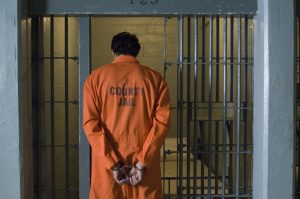 The city of Goodlettsville recently settled with a driver who was wrongfully charged with DUI (called ‘OVI’ in Ohio). The settlement was reported by a local television station which conducted an investigation into sober drivers charged with DUI. The investigation revealed the driver in Goodlettsville was one of hundreds charged with DUI and later exonerated by forensic testing.
The city of Goodlettsville recently settled with a driver who was wrongfully charged with DUI (called ‘OVI’ in Ohio). The settlement was reported by a local television station which conducted an investigation into sober drivers charged with DUI. The investigation revealed the driver in Goodlettsville was one of hundreds charged with DUI and later exonerated by forensic testing.
The Settlement in Goodlettsville
Jeff Adams was on his way to work as a schoolteacher when he was stopped by a police officer for swerving. The officer asked Adams if he had been drinking, and Adams said he doesn’t drink. The officer asked Adams to perform field sobriety tests, and Adams agreed. He figured he would pass the tests, as he had not been drinking. After the tests, the officer arrested Adams and charged him with DUI. Four months later, forensic test results showed there was no alcohol or drugs in Adams’ blood, and the DUI charge was dismissed. Adams’ attorney sent a letter to the city threatening a lawsuit, and the city settled by paying Adams $5,000.
Similar Cases Uncovered by Investigation
Adams was not the only driver in the region wrongly charged with DUI. According to WSM4, the same officer who arrested Adams also arrested two other sober drivers in the same year. But the problem was not limited to one officer. The WSM4 investigation showed 609 sober drivers were arrested for DUI in Tennessee between 2017 and 2013. Each of those drivers was charged with DUI but had no alcohol or drugs in their system.
How Does This Happen?
Every DUI investigation is different, so there is not one reason which explains why sober drivers are charged with DUI. Instead, there are many possible causes.
One possible cause of a wrongful DUI arrest is an officer’s lack of practical experience. Law enforcement officers are trained how to detect that a person is impaired by alcohol and/or drugs. If an officer does not regularly put the training into practice, the officer’s lack of experience may lead to incorrect conclusions. For example, if an officer does not administer the field sobriety tests correctly, the test results are invalid, but the officer will rely on the test results and unjustifiably arrest the driver.
Another possible cause is confirmation bias. Officers look for signs of impairment when watching a person drive, when interacting with a person, and when administering field sobriety tests. If an officer sees a person swerve and smells the odor of alcohol on the person, the officer may jump to the conclusion the person is under the influence. That premature conclusion may lead the officer to notice evidence consistent with intoxication and ignore evidence consistent with sobriety.
A third possible cause (of many) is related to the driver rather than the officer. Some drivers have medical conditions, fatigue, or other circumstances which make them appear to be under the influence of alcohol or drugs when they are not. Officers are not trained to distinguish between drug/alcohol impairment and other conditions.
People Make Mistakes
Police officers are human beings, and human beings make mistakes. An officer who observes a motorist display apparent evidence of impairment has to make a decision whether to arrest that person for DUI. Sometimes, officers make the wrong decision.
The wrong decision was made 609 times in Tennessee. Hopefully, all those drivers were exonerated. Unfortunately, that occurs weeks or months after the arrest, and the person has experienced the trauma and humiliation of being wrongly accused of DUI.
 Columbus OVI/DUI Attorney Blog
Columbus OVI/DUI Attorney Blog

